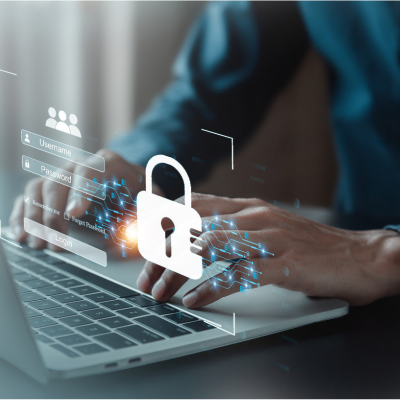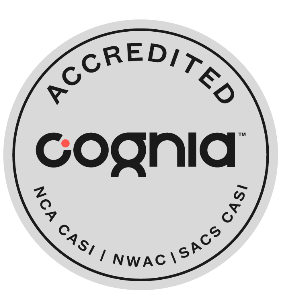National Computer Security Day is November 30th. As our education system continues to develop, computer security is top of mind. Our computers are becoming faster and more advanced. They fit in our pockets, we use them in our schools, and seemingly every facet of our lives.
On this week’s episode of Connect Canyons, Director of Information Technology for the Canyons District, Scot McCombs, says computer security comes down to anyone using technology. “Our first line of defense is all of us,” McCombs says, “it really amounts to the people. We often say, ‘we are only as strong as our weakest link,’ and cyber security really follows that paradigm.”
While the District has several measures in place to help keep devices secure, it’s also up to students and staff alike to be vigilant. “Education is really becoming a prime target in cyber security,” says McCombs, “and one of the reasons for that is we have very critical data, from employee and payroll information to student information.”
The IT Department takes a number of steps to keep the District’s systems secure, from security measures for hardware such as firewalls, to spam and phishing detection in emails.
“We do a lot of training on cyber security,” McCombs says. “We train both students and staff, trying to make sure students understand their role in keeping things safe and secure. Part of that really goes back to digital citizenship, which is a focus for our students and our staff. We really do try to teach that vigilance and ask them, if they see something, say something.”
Recently, schools across the District took part in Digital Citizenship Week. All schools teach at least three lessons a year and incorporate Thrive Time throughout the year while further emphasizing digital citizenships: Being informed, inclusive, engaged, alert, and balanced. McCombs says digital citizenship is something we can practice every day. “We have digital citizenship coordinators in every one of our locations who really try to make sure it’s something we focus on not just for one week but throughout the school year,” says McCombs. “We’re teaching students the right way to use technology, which is to create rather than consume. Making sure they are making appropriate decisions, keeping their device secure and their passwords unique.”
Passwords are another key element to computer security. “One thing we find often is if employees or students are using the same password across multiple platforms, that’s a big vulnerability,” McCombs says.
He recommends finding a good password manager which can not only store passwords but help generate strong, unique passwords. McCombs says computers are getting better at decrypting. He says to make sure your password has not just special characters and upper and lowercase letters, but the longer the passwords are, the more secure they become.
When it comes to those phishing emails which seem to offer great deals or need you to respond quickly, McCombs says if it seems too good to be true, it usually is. “That false sense of urgency is really one of the ways they can get to us,” McCombs says. “If you see a message that has you feeling like you have to take action immediately, that should be a red flag that maybe I don’t need to do this now or ever.”
McCombs says it’s similar to the idea of not leaving your bag or a package in your car or out on the porch, keeping those small simple steps in mind will help keep your digital data safe.
“Have a sounding board,” says McCombs. “Have trusted advisors whether it’s your spouse, colleague, or working with the IT department, make sure you’re vetting those emails.”
Another security risk McCombs says to watch out for is social engineering – manipulating people into revealing specific information. “We make it really simple,” McCombs says. “We put our favorite basketball team, or the street we grew up on onto our feeds, or we show when we’re on vacation. We’re sharing all that and giving it to someone trying to gain access to our personal information.”
There are several resources available on the District’s IT resources page. McCombs also says we can all learn from our mistakes. “Technology is ever evolving and growing,” says McCombs, “and we just have to learn to grow with it. I’ve learned more from my challenges than I do my successes, so recognize and embrace that and if you stumble, look around for someone to give you a hand up and IT is happy to help.”






